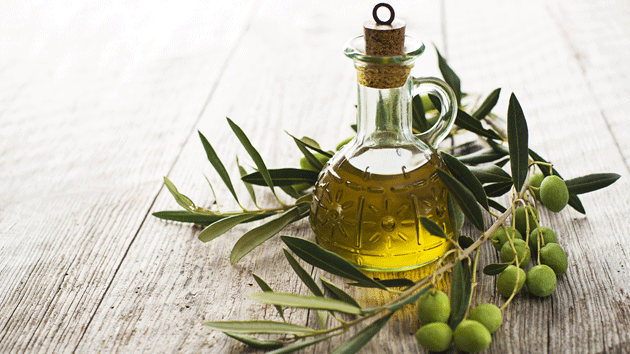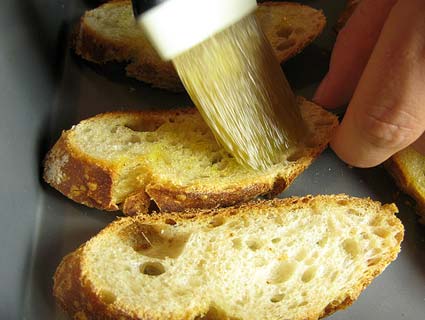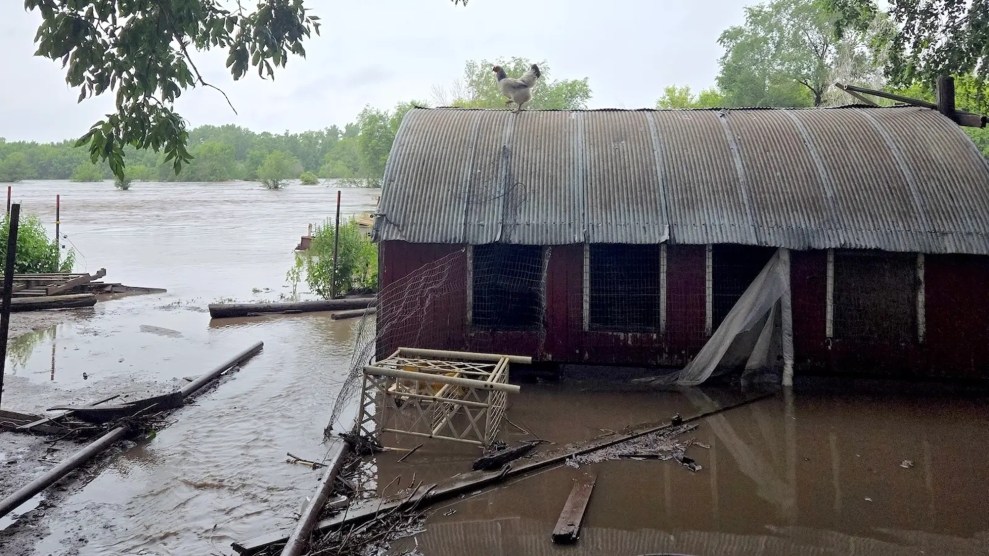
<a href="http://www.shutterstock.com/cat.mhtml?lang=en&language=en&ref_site=photo&search_source=search_form&version=llv1&anyorall=all&safesearch=1&use_local_boost=1&searchterm=olive%20oil%20bread&show_color_wheel=1&orient=&commercial_ok=&media_type=images&search_cat=&searchtermx=&photographer_name=&people_gender=&people_age=&people_ethnicity=&people_number=&color=&page=1&inline=159233054" target="_blank">Dusan Zidar</a>/Shutterstock
The world’s most celebrated olive oil comes from sun-drenched groves of Italy. But Italy is also a hotbed of olive oil subterfuge, counterfeit, and adulteration—and has been since Roman times, as Tom Muellar showed in an eye-opening 2007 New Yorker piece (which grew into a book called Extra Virginity: The Sublime and Scandalous World of Olive Oil.) Next year, getting real olive oil from Italy is going to be even harder than usual. Here’s the LA Times’ Russ Parsons:
As a result of what the Italian newspaper La Repubblica is calling “The Black Year of Italian Olive Oil,” the olive harvest through much of Italy has been devastated—down 35% from last year.
The reason is a kind of perfect storm (so to speak) of rotten weather through the nation:
When the trees were turning flowers to fruit in the spring, freezing weather suddenly turned scorching, causing the trees to drop olives. Summer was hot and humid, leading to all sorts of problems. Then in mid-September, there was a major hail storm, knocking much of the fruit that remained onto the ground.
Other major olive oil-producing nations suffered similar calamities; Parsons reports that in Spain and Mediterranean neighbors, production is also “forecast to be far below last year’s.” And California, that big chunk of Mediterranean-like climate on our west coast, where excellent olive oil is produced? Parsons says the epochal drought is pinching production, and he quotes Muellar to the effect that “frankly, I hear about a lot of games being played there too, with labels and quality alike.” Sigh.
I find all of this distressing. I came of age as a cook in an era of olive oil hegemony. I treat it like the oil that powers my car, as something to be relied on casually, as if it appeared by magic from nowhere. (Nearly all my Tom’s Kitchen columns feature it.)
Once a staple of Mediterranean polyculture—farms and households would feature olive trees in mixed groves along with a multitude of other crops—olive oil production has long since industrialized. Here is The Ecologist from 2008:
Industrial olive farms grow their olive trees, planted at high densities, in massive irrigated orchards on lowland plains. The olives are harvested by machines that clamp around the tree’s trunk and shake it until the olives fall to the ground. Oil is then extracted by industrial-scale centrifuge, often at high temperatures. In contrast, small, traditional farms are often ancient, their trees typically planted on upland terraces. The farmers manage their groves with few or no agrochemicals, less water and less machinery. Olives are picked off the ground by hand and the oil extracted by grinding the olives in a millstone and press. Demand for cheap, mass-produced oil is making it a struggle for the smaller, traditional farms to be economically viable, however.
….
Intensive olive farming is a major cause of one of the biggest environmental problems affecting the EU: widespread soil erosion and desertification in Spain, Greece, Italy and Portugal. In 2001, the European Commission ordered an independent study into the environmental impact of olive farming across the EU. The report concluded: ‘Soil erosion is probably the most serious environmental problem associated with olive farming.
I fear that next year’s olive oil crunch is a harbinger of things to come. I am officially in search of alternative cooking fats. One I’ve come to appreciate: lard from pasture-raised hogs. Lard’s rotten nutritional reputation is the result of outdated and discredited science. And it makes food taste really good, too.


















